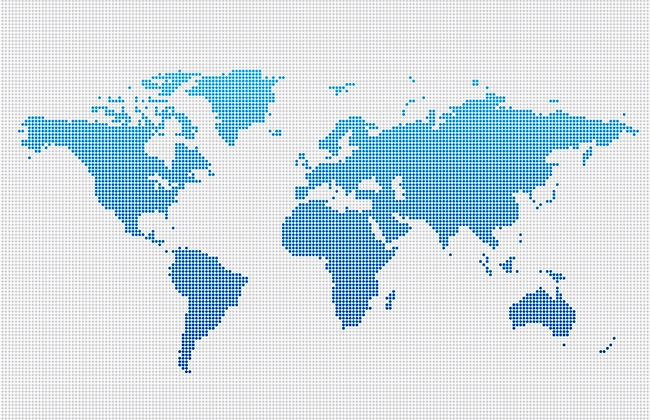
The changing face of globalization
Globalization is undergoing radical change
The free movement of capital, goods, labor, technology and innovation has lowered the cost of providing goods and services. This combination of specific technological innovation, cultural change, geopolitical upheaval—and a global public health crisis—has taken a hammer to corporations’ global strategies. It has even untangled their supply chains, created new digital markets and unlocked value across all industries.
Globalization has also been transformed by its success with small businesses and start-ups harnessing technology to get on the international stage.
While the coronavirus pandemic makes it difficult to predict how multinationals will respond to the competitive pressures placed by the new world order, precrisis observations offer some ideas. Not only is it likely we’ll see multinationals find innovative ways to refocus their resources, they’ll also be reshaping their business models.
ADAPTING TO A NEW ENVIRONMENT
Adaptation has been essential for companies as the global economy has shifted significantly.
Supply chains are a good illustration of the way globalization has evolved and adapted. Automation has brought down the cost of production so much that labor costs have become a less important determinant of industrial location. Companies can now choose to site their activities according to other criteria, such as reduced time to market or proximity to talent pools.
The double-edged sword of globalization’s remake has also motivated companies to become more agile and innovative in their business strategies, prompting them to seek new markets, develop new products, or find more efficient ways to do the same thing.
The telecom industry is a case in point. As the internet has eroded the value of their traditional business – communications – telecom firms have leveraged their core competencies to offer other information services. Telstra, for instance, operates low-latency international connectivity for high-frequency trading companies and BT, formerly known as British Telecom, has moved into the global sports streaming arena.
E-commerce, too, has helped reshape supply chains in order to adapt. While services such as Amazon bring international consumers into contact with providers in global digital marketplaces, the physical transactions it generates can frequently be fulfilled locally.
GEOPOLITICAL PRESSURES
Change has come from geopolitical and cultural pressures too. The trade war between the US and China has compelled the redrawing of logistics links as well as factory and retail location decisions across the world. Brazil, for instance, became a major trader of soy beans with China after the US placed punitive tariffs on Chinese goods.
Globalization has proved divisive in some countries. Economies that were left with high levels of unemployment following the 2008 financial crisis witnessed a rise in frustration with foreign interests.
The resultant reduction in contributions to local exchequers generated outrage, especially among populations whose governments had begun slashing public services to balance their books.
The threat to jobs from automation in the manufacturing sector, often introduced by overseas companies, is also adding to unease among local populations, especially in former industrial heartlands of advanced economies.
The possibility that such sentiment will become further entrenched by the economic ravages of the coronavirus pandemic is something corporate leaders will be urgently assessing.
BUILDING IN RESILIENCY
With such fundamental and fast-moving change, companies have sought to build resiliency into their strategies to ensure they survive—or preferably lead—the next big disruptive innovation or unexpected upheaval. They will be redoubling such efforts in light of the speed with which the coronavirus has disrupted the global economy.
The creation of collaborative digital ecosystems can help. These are networks in which companies work in partnerships to create efficient links between producer and consumer. Studies by the likes of McKinsey have shown that companies with such open, innovative, cultures prosper more than those in traditional buyer-seller transactional arrangements. As technology increases the complexity of product design, collaboration is seen as a way for companies, especially manufacturers, to harness wider expertise and distribution channels.
Companies can also create tools to better manage future uncertainty. Artificial intelligence platforms are used to monitor everything from supply chains to customer behavior in retail stores. Such systems provide insights that enable the tailoring of product offerings to different regional tastes and can also help predict when business models need changing.
The agility this affords has been valuable, as digitalization has decimated some industries and created others. Nike is one such company that saw its business model needed a rethink. The sports apparel maker used technology to strengthen its engagement with customers in order to sell directly to them. By cutting out intermediaries, the American-headquartered company has been able to accelerate product development and restructure its global retail strategy.
Some other positive examples of this can be seen in the logistics companies that have restructured their operations to accommodate the movement of vital goods during the coronavirus epidemic.
NEW PURPOSE
Greater interconnectedness has spread ideas and opinions wider than before, with implications for global organizations. Growing concern about the environment and expectations of more responsible corporate behavior have encouraged many to reshape their purpose and, in many cases, global strategies.
Supply chains have been made more transparent amid calls that their carbon footprints be reduced and to ensure they don’t link into politically or environmentally unsavory partners. Diversity and inclusion have become strategically vital in an increasingly multicultural world. And sensitivity to the cultures of nations that host outsourced operations have become entrenched in business models.
While globalization is being rethought, given disruptions in supply lines, it still holds the promise of creating more efficient and prosperous markets. It will take time before we know if that promise will continue to be realized, but resilience will be a key factor in ensuring it does.
MUFG Americas
1251 Avenue of the Americas
New York, NY, 10020-1104, United States